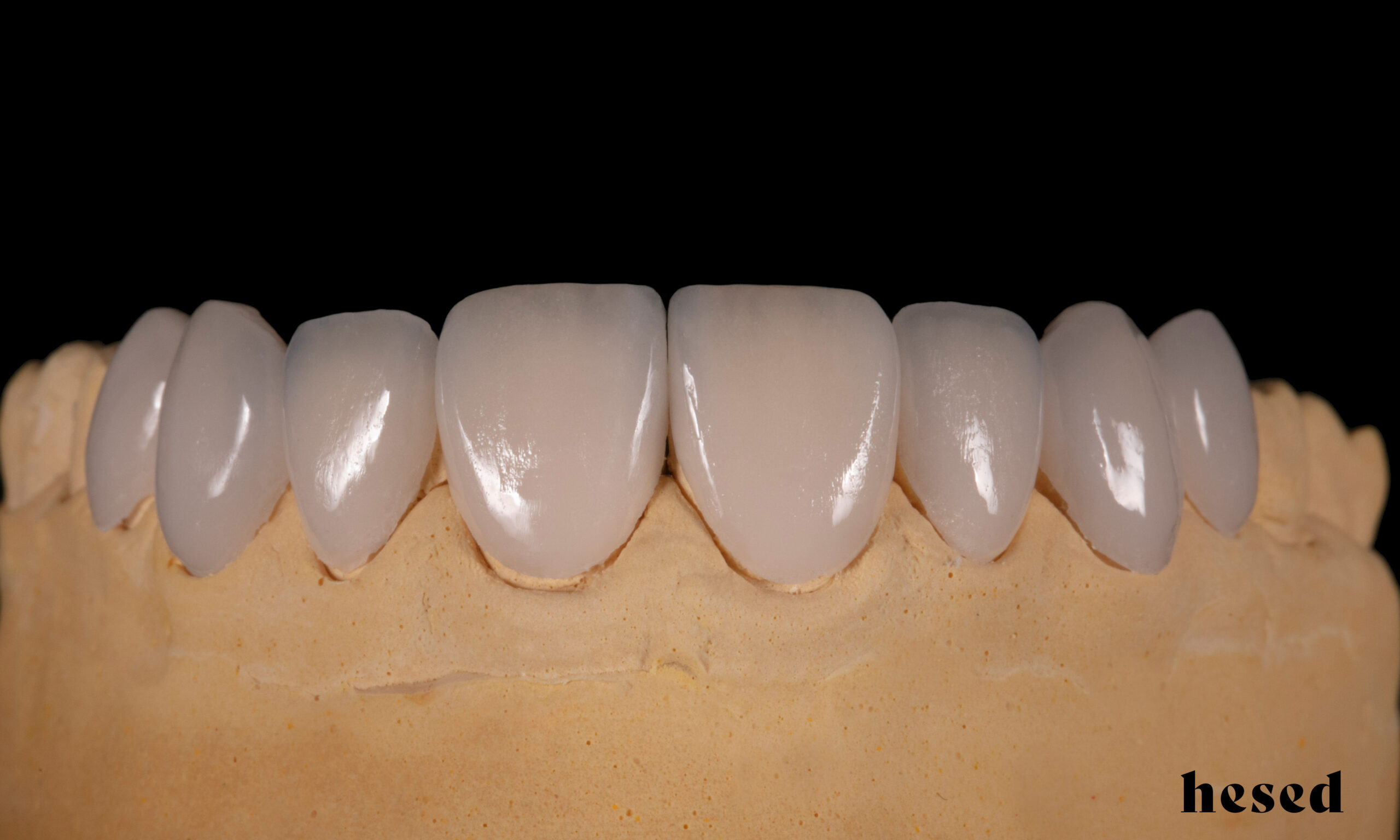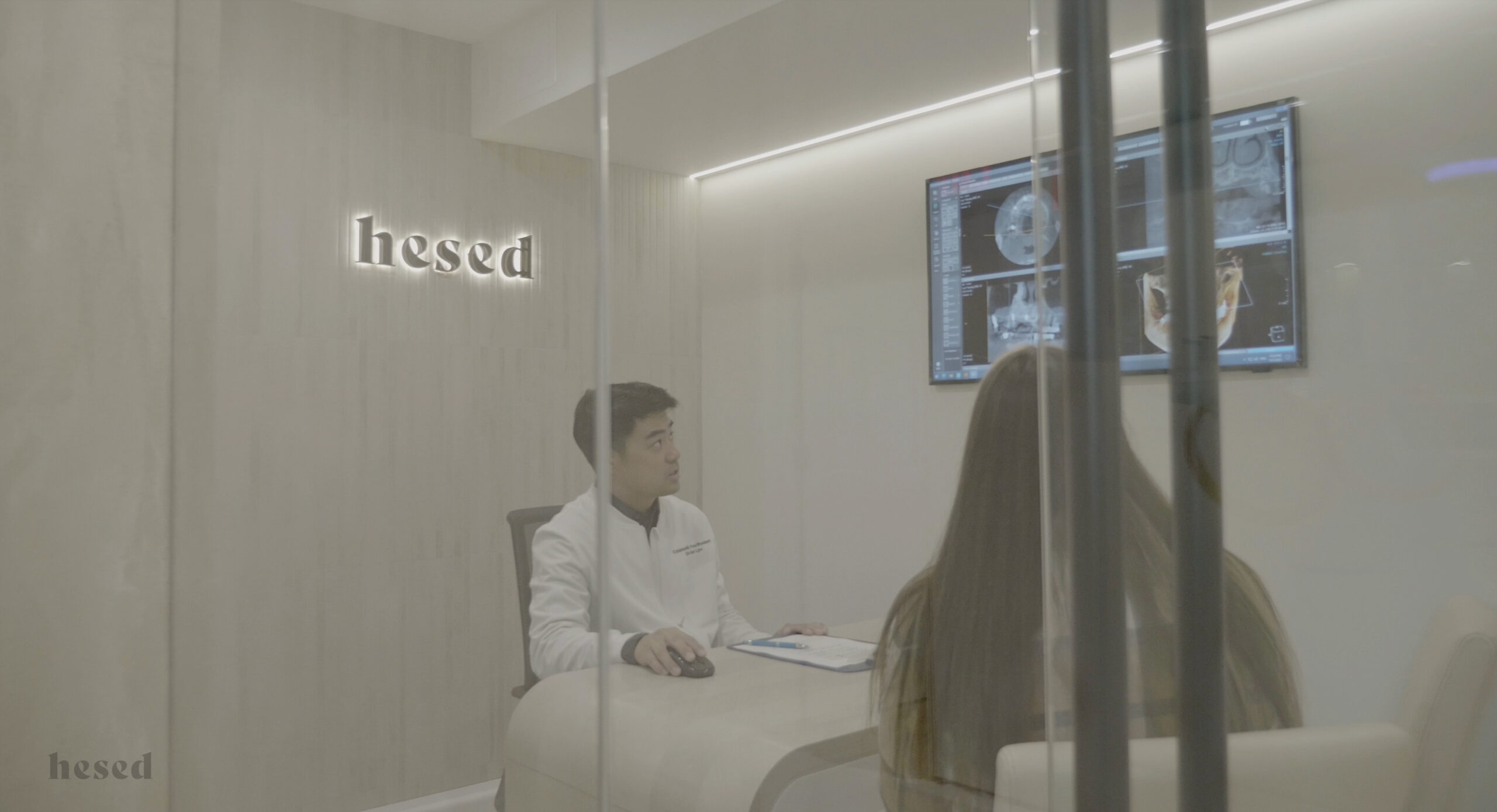Veneers boost the aesthetics and self-esteem of patients by masking the visible flaws and defects in teeth. The dental veneer market is growing exponentially, valued at around US$ 2.7 billion at the end of 2021. The procedure is generally painless. Still, the patients can experience tooth sensitivity after veneers.

Tooth sensitivity after veneers can be due to flaws in the steps of the procedure or the patient’s lack of proper maintenance.
The placement of veneers is a multi-step procedure. It begins with removing the enamel layer (approximately 0.5mm). This creates ample space for the veneers to settle in naturally. The veneers would protrude out and look unaesthetic if the outermost layer is not trimmed. However, sometimes this layer is over-trimmed, and the second layer of the tooth — the dentin — is exposed.
Dentin has an established system through which pain and hot and cold temperatures are felt. Therefore, if this layer is exposed, extreme tooth sensitivity can be experienced, and the patient should see a cosmetic dental expert in New Jersey.
Dentists take the size of your teeth via an impression. That impression helps the dentist to fabricate the veneers according to the size of the teeth. However, if the impression needs to be taken correctly or if it shrinks, veneers of the wrong size are formed. Consequently, large or small veneers are placed on the tooth surface, giving an uneven fitting. This results in tooth sensitivity after veneers.
In addition, this can also affect the patient’s normal occlusion (the normal bite). Thereby causing tooth sensitivity after veneers.
A patient with a completely standard and perfect set of veneers can also face the issue of tooth sensitivity. This happens if the patient has an accident or faces trauma. The veneers can break or be displaced from their designated position. So, tooth sensitivity after veneers becomes the fate. This can be dealt with by repairing the veneers or making new veneers for the patient.
Other than accidents and trauma, tooth sensitivity after veneers can be due to cracks or caries in the underlying tooth. Therefore, it is recommended that the underlying tooth be restored first and then veneers placed. If these dental issues are not resolved first, the tooth might decay and lose its integrity.
It is usual for the first 7 to 10 days to feel tooth sensitivity after veneers. However, tooth sensitivity after veneers might be prolonged due to one or more issues.
When this happens, you need to see a cosmetic dentist as soon as possible to diagnose the cause and treat it accordingly. Ignoring the sensitivity can have serious adverse effects on your teeth.
There are a series of symptoms that you might feel, in addition to enhanced sensitivity to hot and cold food and beverages. Permanent sensitivity after veneers is uncommon. Generally, it is temporary and can be dealt with if diagnosed on time. The symptoms that you might feel are:
You might feel throbbing, intense, or continuous pain for a long duration after eating something. The pain might be around the teeth with veneers or in the surrounding gums. The pain might continue after the trigger (e.g., cold drink, hot soup, etc.) is removed from the tooth.
You can take painkillers (e.g., ibuprofen, naproxen, etc.) for symptomatic relief. For definitive treatment, your cosmetic dentist will have a closer look and provide you with a solution.
Your gums might swell owing to improper fitting and lack of oral hygiene. In some patients, gums may recede as well. When gums recede, there is an excessive display of tooth structure. Additional show of the tooth results in extreme sensitivity and pain even upon the touch of air.
Due to extreme pain and sensitivity, patients avoid brushing and flossing altogether. They presume it might aggravate the condition as the toothpaste, brush, and water contact with the veneers might initiate tooth sensitivity.
Tooth sensitivity after veneers can be treated. You should:
If there is an issue with the size or fitting of the veneers, the dentist might recommend you get new veneers.
Dentists frequently recommend desensitizing toothpaste and mouth rinses to deal with tooth sensitivity in general and tooth sensitivity after veneers. These toothpastes contain fluoride and potassium, which help desensitize them. They should not be used for more than 2 weeks in a row.
The reason why potassium, specifically potassium nitrate, is used in desensitizing toothpastes and mouthwashes is its ability to block nerve conduction. It has the ability to block the nerve channels that carry the sensation of pain due to hot and cold beverages.
You might experience difficulty in speech after getting veneers. This is common, and you need not worry about it. The mouth and brain take time to accept a foreign object, i.e., veneers. Your speech will get better with time. You may feel that your mouth is producing more saliva than usual. This is also common and nothing to worry about.
In addition, it is essential to note that veneers can only mask your teeth’ visible defects and aesthetic flaws. They can not cure or correct cavitated teeth.

This article depicts why you feel tooth sensitivity after veneers. There can be multiple reasons for this, and each reason has an appropriate solution. Getting veneers from a cosmetic dentist is always preferable to any other dentist.
The dentists at Hesed Dental are veneer specialists in NJ. We do not just fabricate the veneers but also customize them as per your personal choices in our in-house lab. Book your appointment today for a top-notch, budget-friendly treatment plan experience.

Hesed Dental 543 Gorge Road Cliffside Park, NJ 07010
201 941 8877